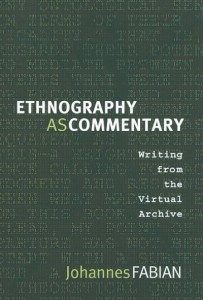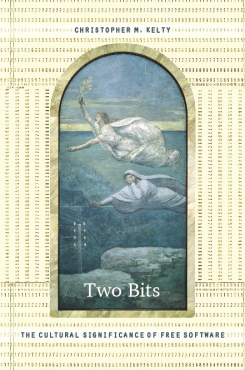The journal Cultural Anthropology is marking the 25th anniversary of the publication of Writing Culture with a special issue devoted to the lasting impact of that volume on the discipline. Then I got to thinking, what makes the last 25 years of anthropology so significant?
It is kind of an arbitrary number. But now that its been suggested why not take stock? What have been the most significant achievements of anthropology since the publication of Writing Culture in 1986?
The other day I was reading the Wikipedia entry on Wittgenstein when I came across a claim that piqued my curiosity, “In 1999 his posthumously published Philosophical Investigations (1953) was ranked as the most important book of 20th Century philosophy.” The embedded citation led me to this–
Lackey, Douglas P. 1999. “What Are the Modern Classics? The Baruch Poll of Great Philosophy in the Twentieth Century.” The Philosophical Forum. 30 (4).
Lo and behold, it’s a journal article. In Wikipedia! It just so happens that my library has access to The Philosophical Forum, so I got the pdf to check it out. Call it productive procrastination, but I love digression. I’m like a kid pulling a thread out of the sand. Where does this lead?
It was Y2K and Lackey had read a bunch of Best of the Century-type lists and had the idea to do one for philosophers. So he emailed 4,000 philosophy professors and received 414 replies to his survey. The article includes separate rankings for most important book and most important article, with light commentary on each entry. It’s quite an enjoyable article, worthy of an extended coffee break or unwinding at the end of the day.
He describes the survey methodology:
We asked respondents to name the five most important books in philosophy in the twentieth century, and also the five most important articles. Giving five choices permits discretion, but five is a small enough number to force voters to choose their selections carefully. Since we were interested in judgments of quality, we instructed respondents to make their choices on the basis of intrinsic merit, not on the basis of causal influence. (By the causal influence standard, Mein Kampf might be the most important book of the twentieth century.)
…
We asked respondents to list their choices in order of preference. On this score we had little compliance… We decided not to use any point system for weighting the results according to preference. We did keep track, however of which book was listed first on each ballot, and used that indication to break ties.
Lackey notes that only twenty five books got eleven votes or more, which if he took in more than 400 survey responses means many, many books only got a few votes at most. In other words, there’s a long tail on this not represented in the rankings below. The survey results, Lackey’s top twenty-five:
Total votes/ Total ranked 1st…..Author, Title
- 179/ 68….. Wittgenstein, Philosophical Investigations
- 134/ 51….. Heidegger, Being and Time
- 131/ 21….. Rawls, Theory of Justice
- 77/ 24….. Wittgenstein, Tractatus Logico-Philosophicus
- 64/ 27….. Russell & Whitehead, Principia Mathematica

